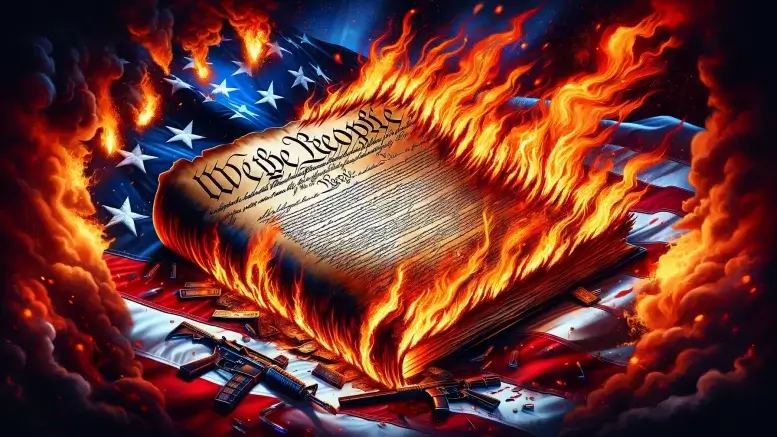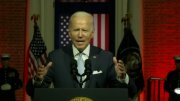Introduction
Robert F. Kennedy Jr.’s speech today calls for Americans to reclaim the foundational principles of the U.S. Constitution. As political institutions face unprecedented challenges, Kennedy identifies the erosion of civil liberties, the weaponization of government agencies, and the departure from democratic ideals. This post explores the constitutional issues he highlights, explicitly referencing the U.S. Constitution and its implications for American democracy.
The First Amendment and Free Speech
The First Amendment to the U.S. Constitution protects free speech: “Congress shall make no law… abridging the freedom of speech.” Kennedy warns of the government’s collusion with media companies to suppress dissenting voices. This censorship violates the First Amendment and threatens the democratic process, making the fight for free speech crucial to reclaiming all other constitutional rights.
The Fourth Amendment and Government Overreach
Kennedy criticizes the misuse of federal agencies like the CIA and FBI to censor and intimidate opponents. The Fourth Amendment protects against unreasonable searches and seizures, ensuring citizens’ privacy. When the government uses its power to suppress dissent, it violates this protection, representing a broader assault on civil liberties that Americans must reclaim.
Judicial Independence and the Separation of Powers
Article III of the Constitution establishes the judiciary as an independent branch essential to the separation of powers. Kennedy highlights how the DNC manipulated the judicial process to block his campaign. This undermines judicial independence, a core principle that prevents any branch of government from becoming too powerful. Reclaiming judicial independence is critical to maintaining the Constitution’s balance of power.
The War Powers Clause and Military Engagement
The Constitution grants Congress the power to declare war (Article I, Section 8, Clause 11). Kennedy argues that the executive branch has bypassed Congress, engaging in perpetual military conflicts like the war in Ukraine. This circumvention of the War Powers Clause concentrates too much power in the executive branch, contradicting the Constitution’s intent. Americans must reclaim control over decisions of war to ensure they reflect the will of the people.
The Tenth Amendment and Federal Overreach
Kennedy also addresses federal overreach in public health and food safety. The Tenth Amendment reserves powers to the states or the people, yet federal agencies have imposed regulations influenced by corporate interests. This centralization of power disregards the rights of states and individuals, challenging the principle of limited government. Reclaiming these rights is essential to restoring the balance intended by the Constitution.
Conclusion
Robert F. Kennedy Jr.’s speech is a profound commentary on the state of American democracy and the need for citizens to reclaim constitutional principles. Issues of censorship, judicial independence, the separation of powers, and federal overreach are fundamental challenges to the Constitution. As Americans, we must reclaim the integrity of our democratic institutions and ensure that the government serves the people, as envisioned by the Constitution’s framers.





